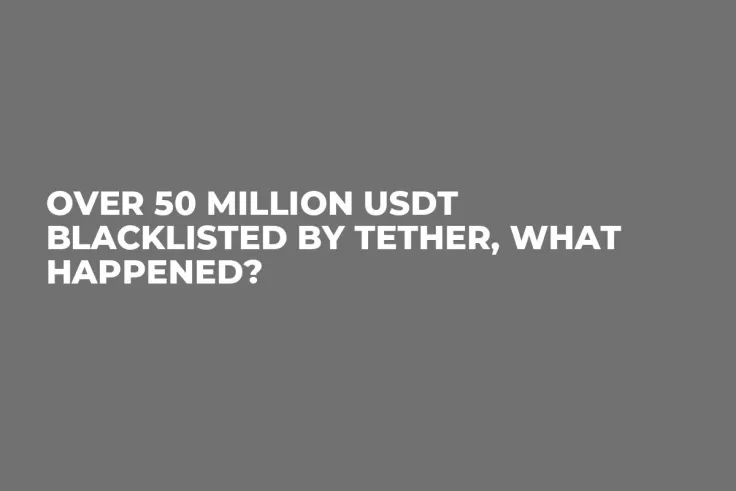
Tether, the company behind world’s best-known stablecoin, has blacklisted five unknown wallets that received a total of 54.1 million USDT, according to data provided by Arkham Intelligence.
The most recent transfer, observed two days ago, originated from a wallet that had previously dispersed most of its funds to other wallets in the preceding six months.

This is not the first instance of Tether cracking down on addresses linked to illicit activities. Tether previously froze about 225 million USDT tokens in collaboration with OKX and the U.S. Department of Justice (DOJ) during an investigation into an international human trafficking syndicate tied to a romance scam in Southeast Asia.
Amid increased regulatory scrutiny, Tether has been actively screening its customers for compliance and blacklisting wallets connected to suspicious behavior.
In another development, Bloomberg reported that Kraken, a cryptocurrency exchange, is considering removing Tether (USDT) from its platform to comply with the forthcoming regulatory framework outlined in the European Union's Markets in Crypto Assets (MiCA), set to take effect in July this year.
Kraken is currently evaluating potential actions, including ceasing support for Tether, the most heavily traded cryptocurrency on its platform within the European Union. The upcoming regulations outlined in MiCA are expected to impact Tether Holdings Ltd.'s USDT, a stablecoin designed to maintain a one-to-one value with the dollar.
The impending guidance, pending finalization by the European Banking Authority, is poised to impose restrictions on stablecoins offered to investors within the bloc. Stablecoins are predominantly used by traders for facilitating the transfer of digital assets between exchanges and as a means of safeguarding wealth against token price fluctuations.

 Vladislav Sopov
Vladislav Sopov Dan Burgin
Dan Burgin